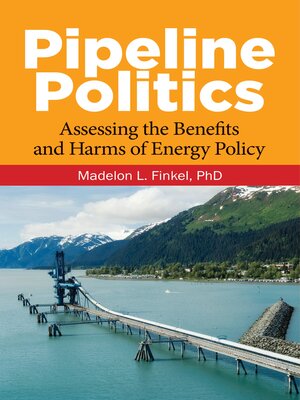
Sign up to save your library
With an OverDrive account, you can save your favorite libraries for at-a-glance information about availability. Find out more about OverDrive accounts.
Find this title in Libby, the library reading app by OverDrive.



Search for a digital library with this title
Title found at these libraries:
| Library Name | Distance |
|---|---|
| Loading... |
An essential review of the history, benefits, limitations, failures, and politics of pipelines, with a core focus on potential harms to environmental and human health.
The United States holds the world record of having the largest network of energy pipelines, with more than 2.4 million miles of pipeline transporting oil or natural gas. Russia, China, and Canada as well as many other countries also have extensive pipelines. How safe is this means of transport, and is there a potential harm to the environment and human health? In this text, professor Madelon L. Finkel presents an essential and clearly-stated review of the pros and cons of transporting oil and natural gas by pipeline. Finkel dispels myths, inaccuracies, and misconceptions and highlights the potential dangers that must be considered in any country's energy policy.
Pipeline Politics: Assessing the Benefits and Harms of Energy Policy provides a broad and accessible analysis of pipelines, from their history and safety to their politics and risks. Finkel examines the benefits and costs of pipelines in parallel as well as issues of environmental justice; the fairness of treatment of the people affected; and the development, implementation, and enforcement of pipeline laws, regulations, and policies.
The United States holds the world record of having the largest network of energy pipelines, with more than 2.4 million miles of pipeline transporting oil or natural gas. Russia, China, and Canada as well as many other countries also have extensive pipelines. How safe is this means of transport, and is there a potential harm to the environment and human health? In this text, professor Madelon L. Finkel presents an essential and clearly-stated review of the pros and cons of transporting oil and natural gas by pipeline. Finkel dispels myths, inaccuracies, and misconceptions and highlights the potential dangers that must be considered in any country's energy policy.
Pipeline Politics: Assessing the Benefits and Harms of Energy Policy provides a broad and accessible analysis of pipelines, from their history and safety to their politics and risks. Finkel examines the benefits and costs of pipelines in parallel as well as issues of environmental justice; the fairness of treatment of the people affected; and the development, implementation, and enforcement of pipeline laws, regulations, and policies.







